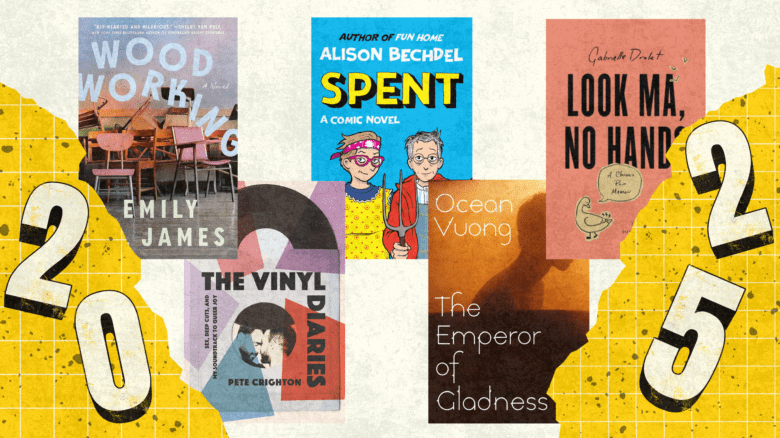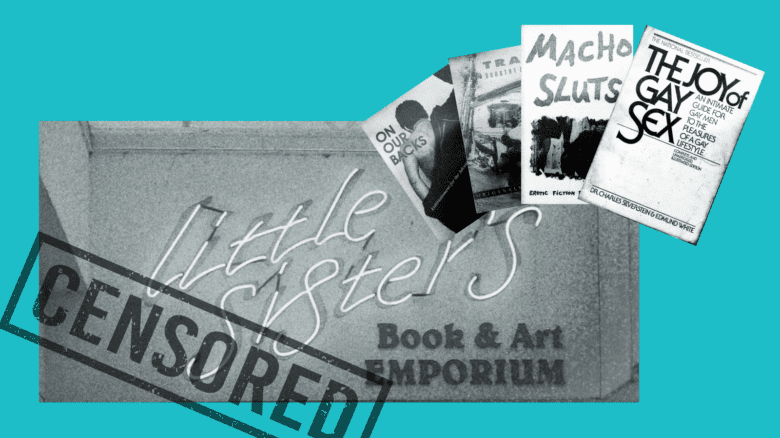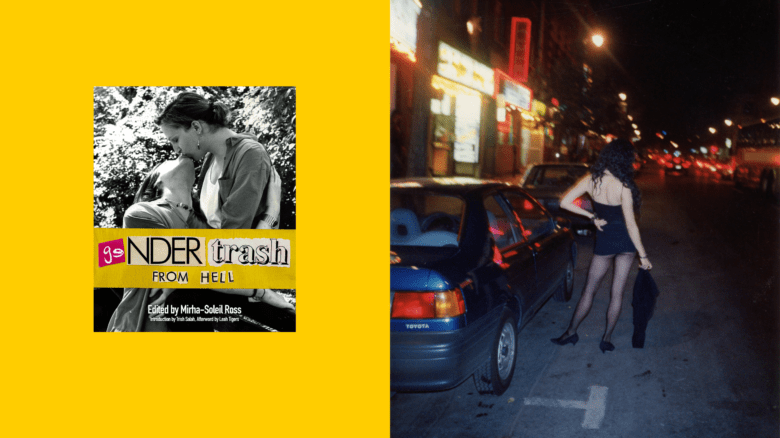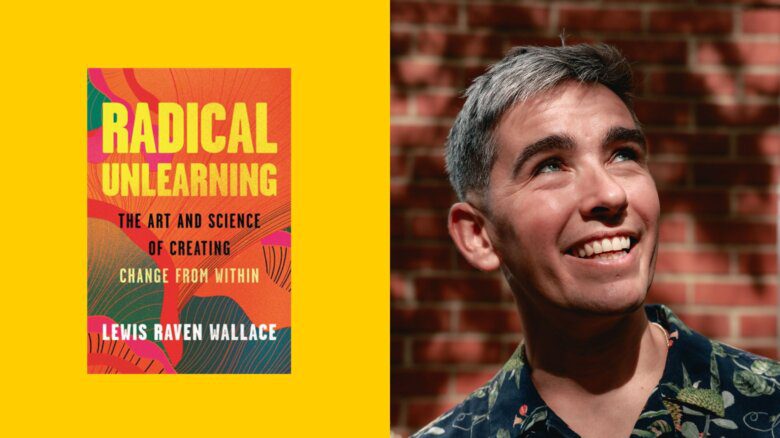The suppression of ideas and stories can take many forms. Book burning is only the most dramatic one. Books can be dropped from libraries and educational curricula, left off reading lists, tucked away to limit access and, as Canadian LGBTQ2S+ booksellers experienced for decades, prevented from crossing borders.
These days, schools have become the key battlegrounds for those seeking to stop people from reading things they don’t like. That’s especially true for LGBTQ2S+ material in schools where censorious types are able to stoke parental fears about the scary things—like, shock and horror, queer and trans experiences—their children might be learning about behind their backs.
Xtra reached out to eight authors who have published books about LGBTQ2S+ subject matter (including some straight people), who have recently been challenged—that is, a person, group or government agency has tried, successfully or not, to remove their book from a shelf, library, reading list or classroom. We asked them a few simple questions about their experiences.
Bil Wright
Author of Putting Makeup on the Fat Boy (Simon & Schuster) and contributor to The Letter Q: Queer Writers’ Notes to their Younger Selves (Scholastic)
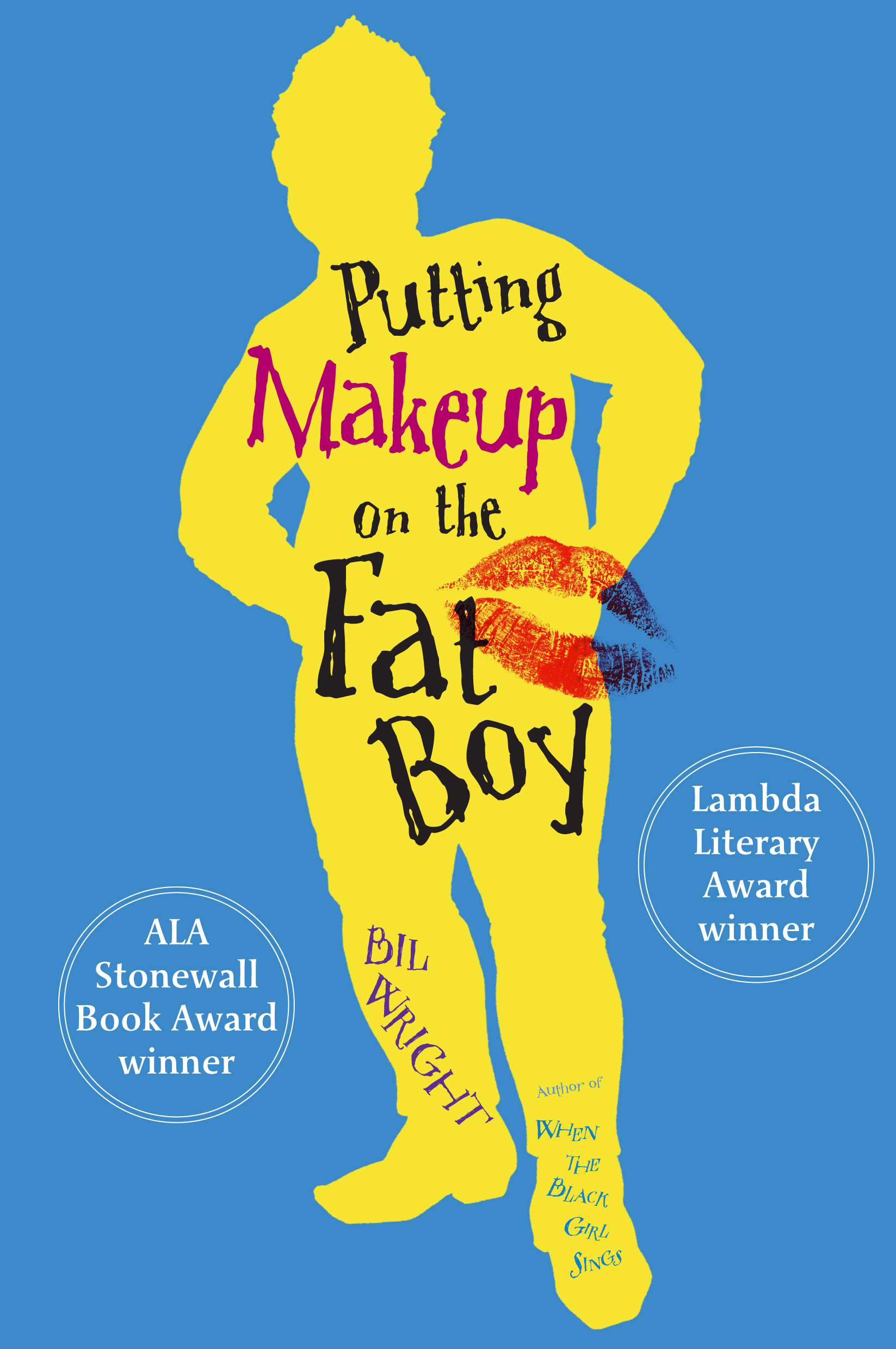
The award-winning 2011 young adult novel Putting Makeup on the Fat Boy by Bil Wright follows the story of a fabulous New York high-school student who dreams of, then lands, a job as a makeup artist at Macy’s. In the 2014 anthology The Letter Q, Wright is one of 63 authors, including the likes of Michael Cunningham, Amy Bloom and Armistead Maupin, who contributed essays of advice and encouragement to their younger selves.
Where has your book been challenged and/or banned and why do you think it happened?
In her article in the online magazine Book Riot, Danika Ellis discusses the 850 books on the list Texas Republican State Rep. Matt Krause is proposing to ban throughout the Texas school library system. “These books are theoretically related to House Bill 3979, a so-called anti-CRT [critical race theory] bill, that bans teaching any materials that could mean ‘an individual should feel discomfort, guilt, anguish or any other form of psychological distress on account of the individual’s race or sex.’”
At this moment, thank God, the proposal has not yet been passed. If it is, it will be the first I’ve heard of my work being banned. Has my work caused any individual to feel discomfort, guilt, anguish or any other form of psychological distress on account of their race or sex? Perhaps. If my work has caused any reader to feel discomfort, guilt or anguish concerning their racism, sexism or homophobia, I stand proud that my writing has been so impactful. It is one of the most important objectives I have as a writer.
Did you suspect this would happen when you were writing the book?
What I hoped, what I always hope, is that my work will reach sexists, homophobes and racists, as well as the young people I write for. If we writers continue to reach audiences who might not be aware of their own “isms,” their minds and hearts may be awakened.
How will this affect your career as a writer?
As a novelist of Young Adult novels with the same intentions for all of my books, I hope that more young adults will hear about them and seek them out.
What will you do about it?
Continue to write.
What’s your own favourite banned book?
Toni Morrison’s The Bluest Eye. What a highly crafted, soul-touching, world-changing book!
Cory Silverberg
Author, with Fiona Smyth, of Sex is a Funny Word (Seven Stories Press)
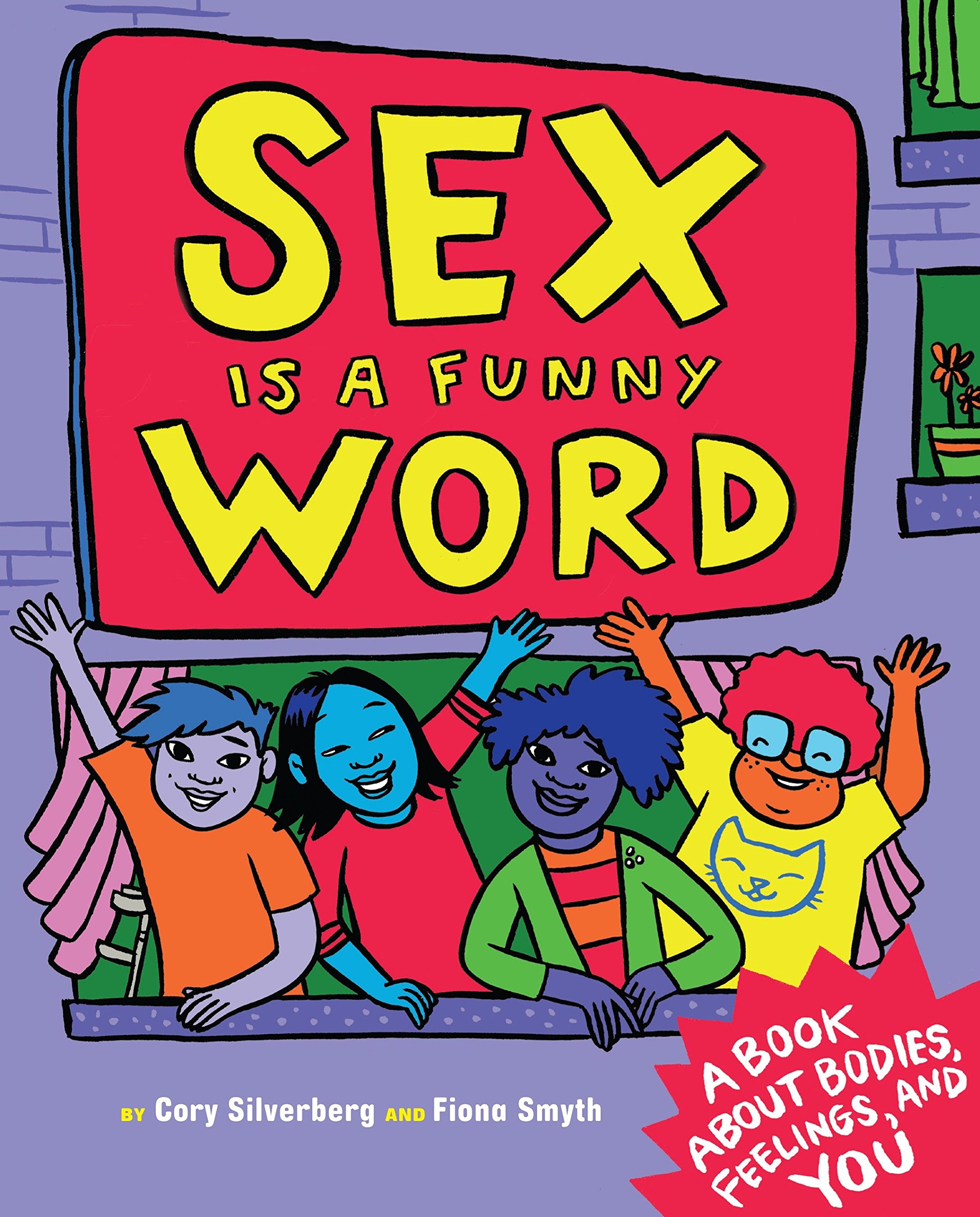
Following the success of their 2013 collaboration What Makes a Baby, 2015’s Sex is a Funny Word is an award-winning educational comic book for kids about sexuality, body parts and families. It includes references to lesbian, gay, bisexual, trans and intersex bodies and experiences, as well as gender creative and gender-nonconforming children.
Where has your book been challenged and/or banned and why do you think it happened?
Our second book, Sex is a Funny Word, has been on the most challenged list of the American Library Association for a few years. So people are trying to get the book removed or banned from libraries and schools, but a lot of the time, in the case of our book, the challenge fails. Sometimes the response is to move the book to a different section or make it less accessible, so it’s still not great. The only country where I know this has happened is in the United States. Of course, it may be happening in Canada and other countries and people may just not be talking about it.
Honestly, I don’t know why it happens because I’m not in conversation or community with the people who are trying to get our books banned. When I read the news coverage of public meetings where adults are complaining, it seems like they don’t want their kids learning about the way the world is. They don’t want them to learn to think critically about race, colonization, gender, sexuality or violence. I try not to guess too much.
Did you suspect this would happen when you and Fiona were producing the book?
I didn’t suspect it with our first book because it’s a picture book full of adorable babies. I knew some people wouldn’t like the challenge to the gender binary, but prior to What Makes a Baby coming out, I didn’t understand the ways a small group of people organize to threaten and try and silence much larger groups of people. Of course, they come after us one by one. With books two and three, this was something we were more aware of because, being for older kids, they deal more directly with topics like gender, race, boundaries, consent, pornography and violence. But the people trying to ban our books are not in the equation when it comes to creating our books.
How will this affect your career as a writer?
Because I’m white and middle class, this will affect my career as a writer in a positive way. When our books are banned or there are efforts to ban them, media covers it and book sales go up. Selling more books generally makes you more interesting to publishers. This is how capitalism is killing us because while what I just said is true, it’s also true that librarians, teachers and booksellers are being threatened and harassed online and in person for carrying and supporting our books. And they come after me and my community. And at the same time, to your point, I make money from it. If the question was about how being banned affects my life as a person, the answer is less positive.
What will you do about it?
Part of my response to being attacked and isolated is to build community. So I connect with librarians and teachers and booksellers, and other people whose books are targeted. I offer my time and labour when it’s useful to them, and other times we just support each other in conversation, or through emojis and bad jokes. I redistribute some of the money we make in royalties through care collectives and by buying books and giving them away.
I support other people who are trying to write their own books for young people when the stories they are sharing are real and the kinds of stories we don’t get to read enough in books for young people. Lastly, I’m going to keep writing these books. And hopefully Fiona will keep writing them with me.
What’s your own favourite banned book?
I pay attention to efforts to ban books, but honestly, I don’t focus on the specific books, because which books are banned is largely a function of capitalism and elitism. You get banned when you get big enough to be in all the libraries and noticed. There are so many books that are more radical and challenging of the status quo that never get banned because they don’t get acknowledged or lifted up in the media or by bookstores and libraries. I could never pick one book, but currently two of my favourite books that book banners would probably want to ban are the graphic novel series Surviving the City by Tasha Spillett and illustrated by Natasha Donovan, and Kia Corthron’s Moon and the Mars.
DeShanna Neal
Author, with her daughter Trinity Neal and illustrator Art Twink, of My Rainbow (Kokila/Penguin Random House)
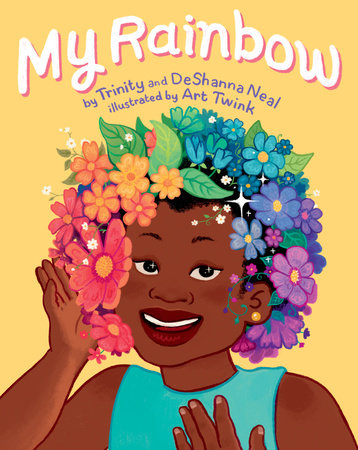
This children’s book is based on the true story of DeShanna creating the perfect rainbow-coloured wig for her transgender daughter, Trinity. (In real life, as a teenage activist advocating for better trans health care, Trinity met former First Lady Michelle Obama in such a wig). Trinity became one of the first minors in the state of Delaware to petition county court to change her gender marker on her birth certificate to “female.”
Where has your book been challenged and/or banned and why do you think it happened?
So, I didn’t even know my book had been banned. However, after searching, I saw that it’s been tagged as a “banned” book in Columbus, Ohio. I also learned that it’s part of a list of hundreds of other books being considered to be banned in Texas. So I guess I made it?
Did you suspect this would happen when you were writing the book?
Truly no. When my daughter, Trinity, and I started writing our book, never once did we expect it to cause so much upset that it would be banned. It’s a picture book. For kids. That’s it.
How will this affect your career as a writer?
It won’t. I’ve always spoken out for trans rights before writing the book and will continue to do so. That includes if I write another book. I never let haters stop me from spreading love and awareness.
What will you do about it?
Share that My Rainbow has become a banned book and tell people to definitely get it now so they too can be rebels
What’s your own favourite banned book?
The Bluest Eye by Toni Morrison.
Susan Kuklin
Author and photographer of Beyond Magenta: Transgender Teens Speak Out (Candlewick Press)
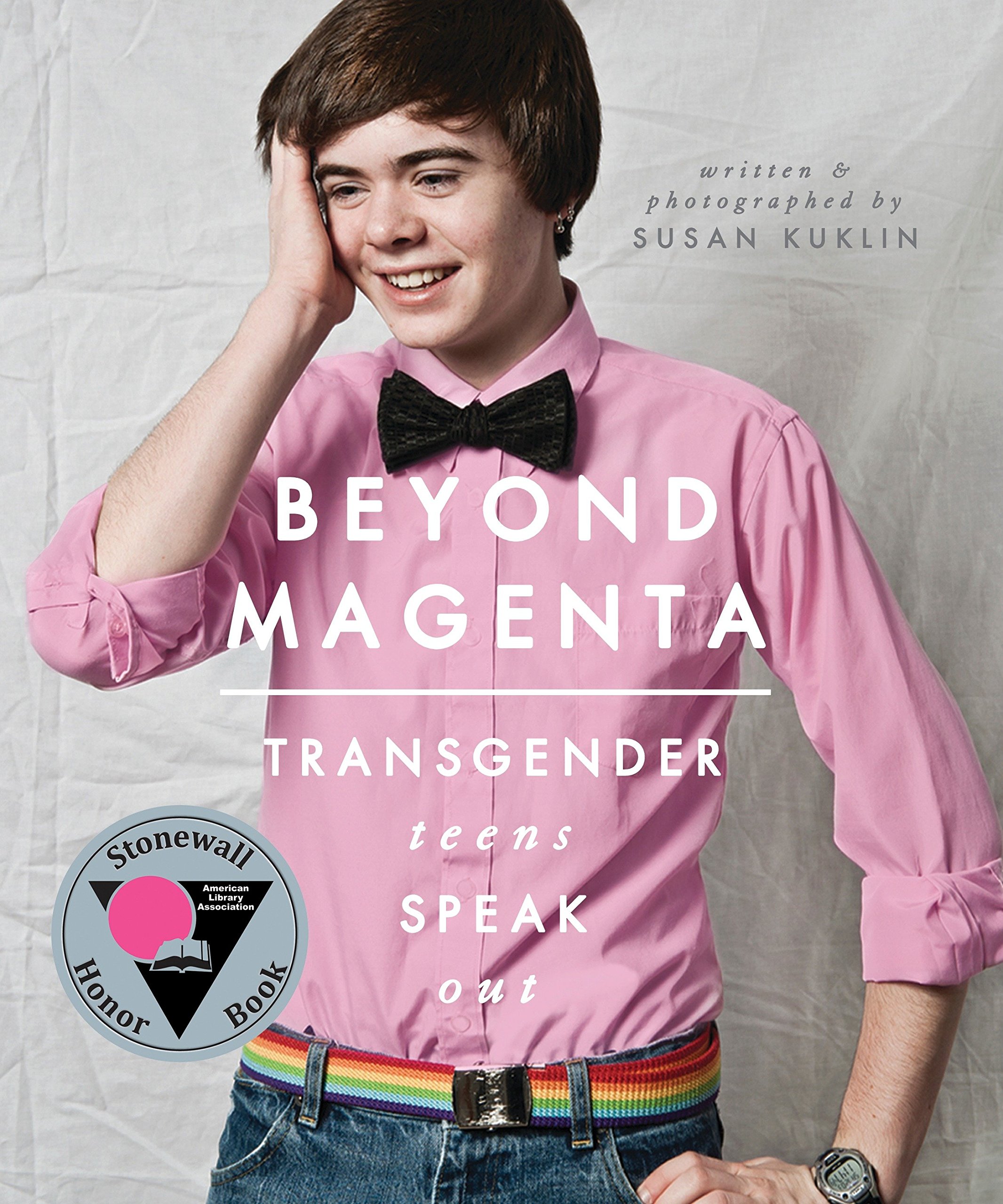
In this 2014 award-winner, Susan Kuklin interviewed and photographed six transgender or gender-neutral young adults at various stages of their coming-out processes. Publishers Weekly called the book a “sorely needed resource for teens and, frankly, many adults … Downright revelatory.”
Where has your book been challenged and/or banned and why do you think it happened?
Beyond Magenta was on the American Library Association’s top 10 most-challenged books list in 2015 and 2019. It has been challenged in Australia, Ireland and across the U.S.—especially in Texas and Virginia. I believe it has been singled out, along with other books that deal with sex, race and LGBTQ+ subjects, by conservative groups to galvanize their followers.
Did you suspect this would happen when you were producing the book?
It never occurred to me that my book would be banned. Throughout my career as a non-fiction writer and photographer, I’ve chosen subjects that I find personally thought-provoking: immigration, teen pregnancy, AIDS, suicide, human rights abuses, even teenagers on death row. As far as I know, none of these books has been banned or challenged. I was surprised.
How will this affect your career as a writer?
My career as a writer will not change because I believe—I strongly believe—in free expression. Truth writing. I write what I care about. I write what I want to know more about and what I think others may also find edifying and useful. Whether or not people decide to read my books is their choice. Only their choice, only for themselves.
What will you do about it?
I will continue to write. I will continue to speak out.
What’s your own favourite banned book?
Hmmm, there are so many wonderful books on the challenged list to choose from. Adult books: The God of Small Things by Arundhati Roy, The Kite Runner by Khaled Hosseini and Beloved by Toni Morrison. Children’s books: It’s Perfectly Normal by Robie H. Harris, Heather Has Two Mommies by Lesléa Newman and And Tango Makes Three by Justin Richardson and Peter Parnell.
Kyle Lukoff
Author, with illustrator Luciano Lozano, of Call Me Max (Reycraft Books)
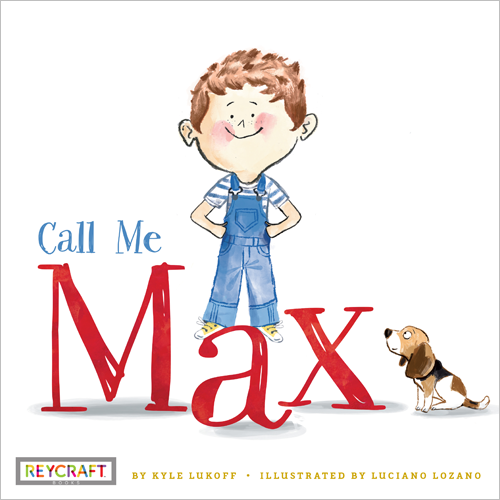
Published in 2019, Kyle Lukoff’s award-winning children’s book is about the journey of elementary-school pupil Max as he makes new friends and reveals his feelings about his gender identity. It was so successful that Lukoff, who is trans, wrote two sequels: Max on the Farm and Max and the Talent Show.
Where has your book been challenged and/or banned and why do you think it happened?
I have heard of situations in Utah; Austin, Texas; Pennsylvania; San Diego, California; Indiana and Westchester County, New York, where my books have been subject to controversy. I know that there are others that haven’t been brought to my attention. This is happening in tandem with a larger push across the country, ostensibly focusing on what books are or aren’t appropriate for kids to read in school, but the real motivation is part of a larger effort for a militant, theocratic political party to take over the government.
Did you suspect this would happen when you were writing the book?
I did not know what kind of world my books would be born into, but as a student of history, I know that periods of openness and progressivism are often met by harsh and violent backlash.
How will this affect your career as a writer?
I suppose I’ll just have to wait and see.
What will you do about it?
Continue to speak about the bigger context of these bans, continue to write my books and continue to connect with allies, comrades and community members all over this country who need support.
What’s your own favourite banned book?
My apologies, but I don’t deal in favourites.
Jessica Herthel
Author, with co-author Jazz Jennings and illustrator Shelagh McNicholas, of I Am Jazz (Penguin Random House)
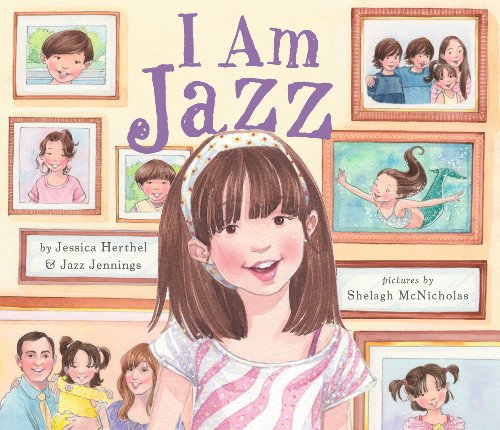
Jessica Herthel co-wrote this award-winning 2014 illustrated memoir with its subject, Jazz Jennings, a transgender activist and YouTube star from Florida, when Jennings was a teenager.
Where has your book been challenged and/or banned and why do you think it happened?
Although there are certainly some high-profile instances of the book being pulled from shelves (currently, we are abundantly in the news in Polk County, Florida), the American Library Association publishes its nationwide list of Most Banned Books every year without specifying location. That said, I Am Jazz has been amongst the top 13 banned books in the U.S. every year since its publication in 2014.
Did you suspect this would happen when you were writing the book?
We knew that the book would ruffle some feathers because it was the first children’s book to expressly explain the meaning of “transgender,” but we never dreamed that people would be so closed-minded as to actually remove it from library shelves. Often, the people who are protesting the book most passionately have never actually read it. This is obvious based on their objections: most recently, we were accused of publishing “pornography.”
How will this affect your career as a writer?
The shift towards book banning in America only makes me more determined to amplify more stories of underrepresented youth. Censorship is never the answer, no matter how uncomfortable the subject matter might be for some. After all, being uncomfortable is not the same thing as being unsafe, which is exactly how LGBTQ+ young people often feel in their classrooms, churches and even homes.
What will you do about it?
I travel to communities large and small, sharing my own journey from straight parent of three straight children to dedicated ally and advocate. I realized early on as a mother that every family should be talking to their kids about marginalized communities; you don’t have to be a part of a community in order to value, respect and appreciate them.
What’s your own favourite banned book?
I am currently partial to Melissa by Alex Gino. Just as ours was the first book to describe the transgender experience to elementary school children, Melissa was one of the first to tackle the middle-school audience. As can never be said enough: representation matters. I am humbled to have played a small part in telling Jazz’s story to the world.
Alex Gino
Author of Melissa (Scholastic Books)
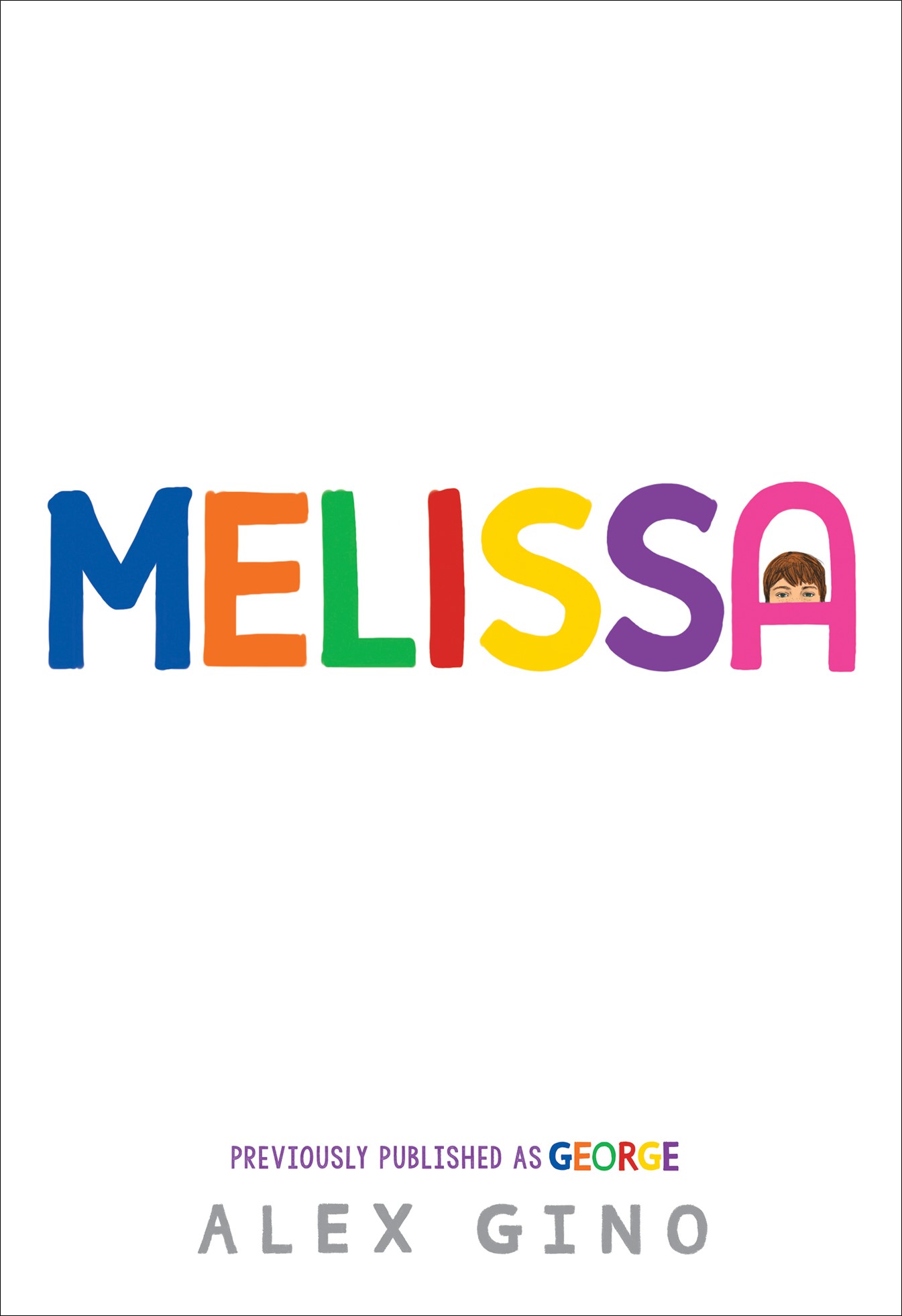
Originally released in 2015 as George, this award-winning novel, aimed at middle-school readers, is about a fourth-grade transgender girl who uses the play Charlotte’s Web to show her mom that she’s a girl.
Where has your book been challenged and/or banned and why do you think it happened?
I don’t keep lists, but Melissa was already the number-one title on the American Library Association’s list of challenged books before this current surge of attempted censorship. Many adults are afraid of kids learning about queer and trans people, largely because they know very little themselves. Rather than learn, they try to prevent LGBTQIAP+ kids from seeing themselves reflected in literature, and to keep every kid from knowing the richness of LGBTQIAP+ culture. This leads to another generation of adults who are unprepared to be themselves and to see others.
Did you suspect this would happen when you were writing the book?
I’m more surprised that Melissa was published in 2015 than that it’s been challenged since. Not many years before that, the challenge would have been finding a mainstream publisher willing to publish a book with a trans child main character. Censorship can come at many levels and in many forms. It’s progress for LGBTQIAP+ books for youth to exist at all, so of course, there’s backlash. That doesn’t excuse it, but I knew it would come.
How will this affect your career as a writer?
It’s a purpose deep in my core to provide kids with tools to learn and to talk about topics adults often want to avoid. This current wave, in which entire cartloads of books are being pulled from library shelves, is scary, but it seems like this is part of my career, whether I want it to be or not.
What will you do about it?
I’m going to keep writing books with LGBTQIAP+ characters and themes. They are clearly needed. And I’ll keep visiting schools and libraries and sharing what I’ve learned about the importance of kids seeing themselves in stories.
What’s your own favourite banned book?
The one that someone writes after reading this and realizing they’ve been censoring themselves from writing it.
Mike Curato
Author of the graphic novel Flamer (Macmillan)
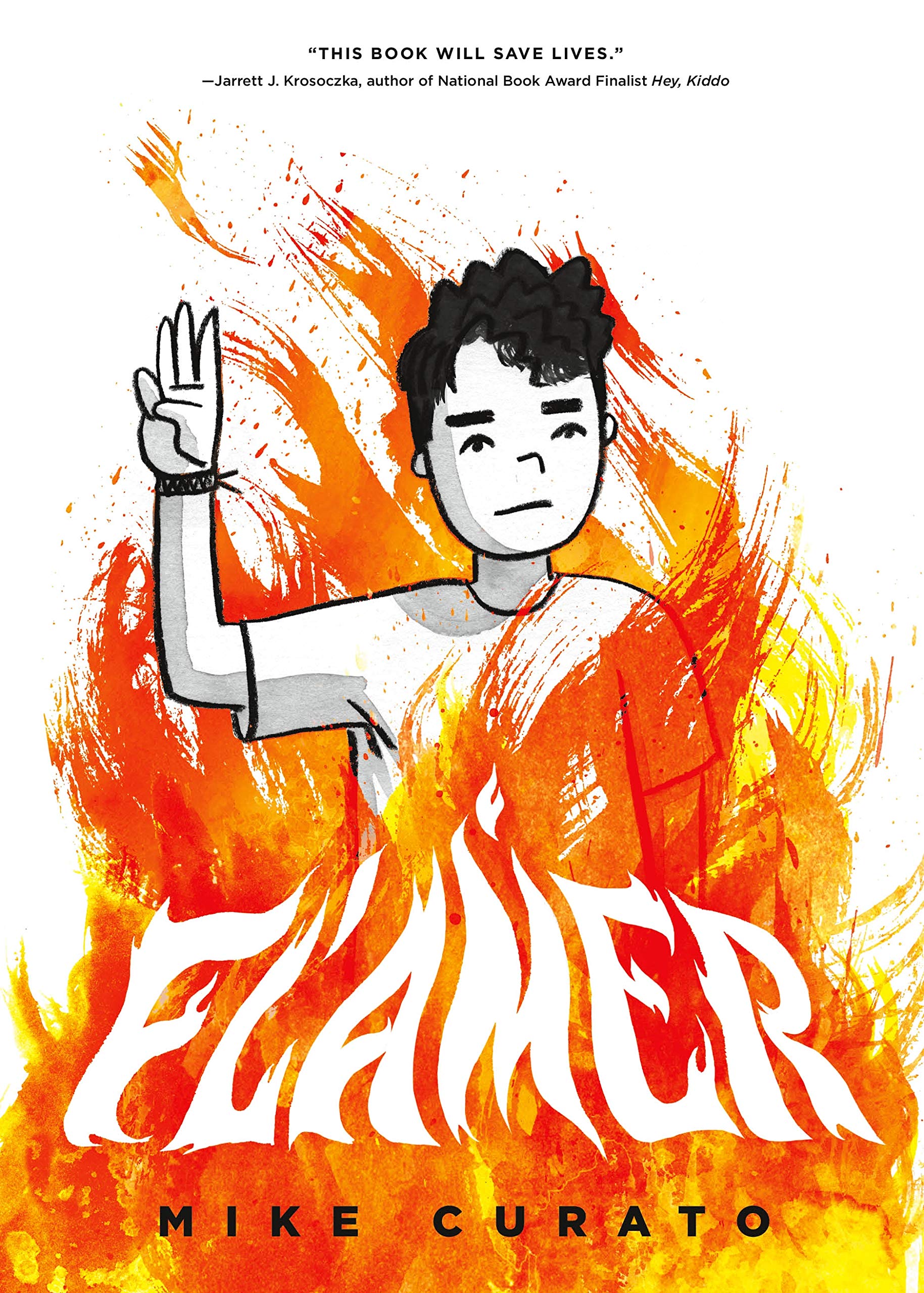
The debut graphic novel by artist and illustrator Mike Curato draws on his own real-life experiences between middle school and high school, as his protagonist Aiden Navarro navigates friendships, bullies and a boy he can’t stop thinking about while at camp.
Where has your book been challenged and/or banned and why do you think it happened?
There are schools in Texas that have banned Flamer, and it has been challenged in several other states as well. There is a consistent pattern of books for and/or by BIPOC and queer people. My book fits the profile.
Did you suspect this would happen when you were writing the book?
I did have a feeling that the book would be banned, simply because it features a queer protagonist, and it addresses real issues that queer teens face. It seems that some adults will go to any possible measures to deny the existence of queer children. They think that denying queer students a book in which to see themselves will somehow prevent them from becoming the people they are. The only difference that actually makes is fostering self-loathing in queer youth, and homophobia in their peers. No one wins.
How will this affect your career as a writer?
These book bans just reinforce the need for books like mine to exist. The bans and challenges are a disappointing distraction, but they are not substantial enough to deter me from writing. I also believe there are more people out there who support queer and BIPOC stories than those who do not.
What will you do about it?
I’m making some time for events that are addressing this issue. However, I think the best thing I can do is continue to make books that help people feel seen and loved, books that tell the truth.
What’s your own favourite banned book?
There are so many good banned books. I think one of my favourites that has always made the ban list since its debut is George (retitled Melissa) by Alex Gino. It broke my heart, and then helped it grow into one that is more compassionate and more understanding.
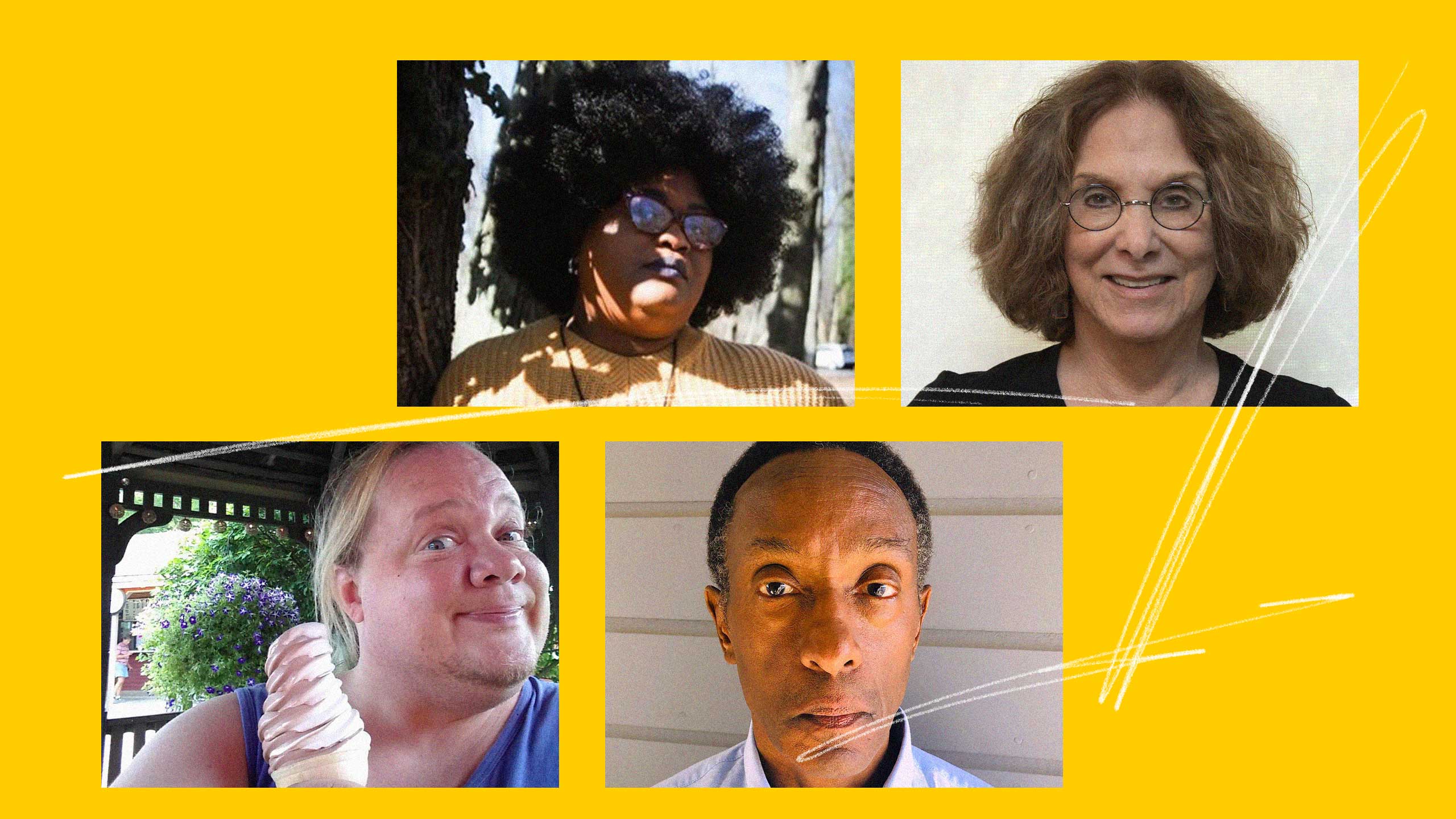

 Why you can trust Xtra
Why you can trust Xtra